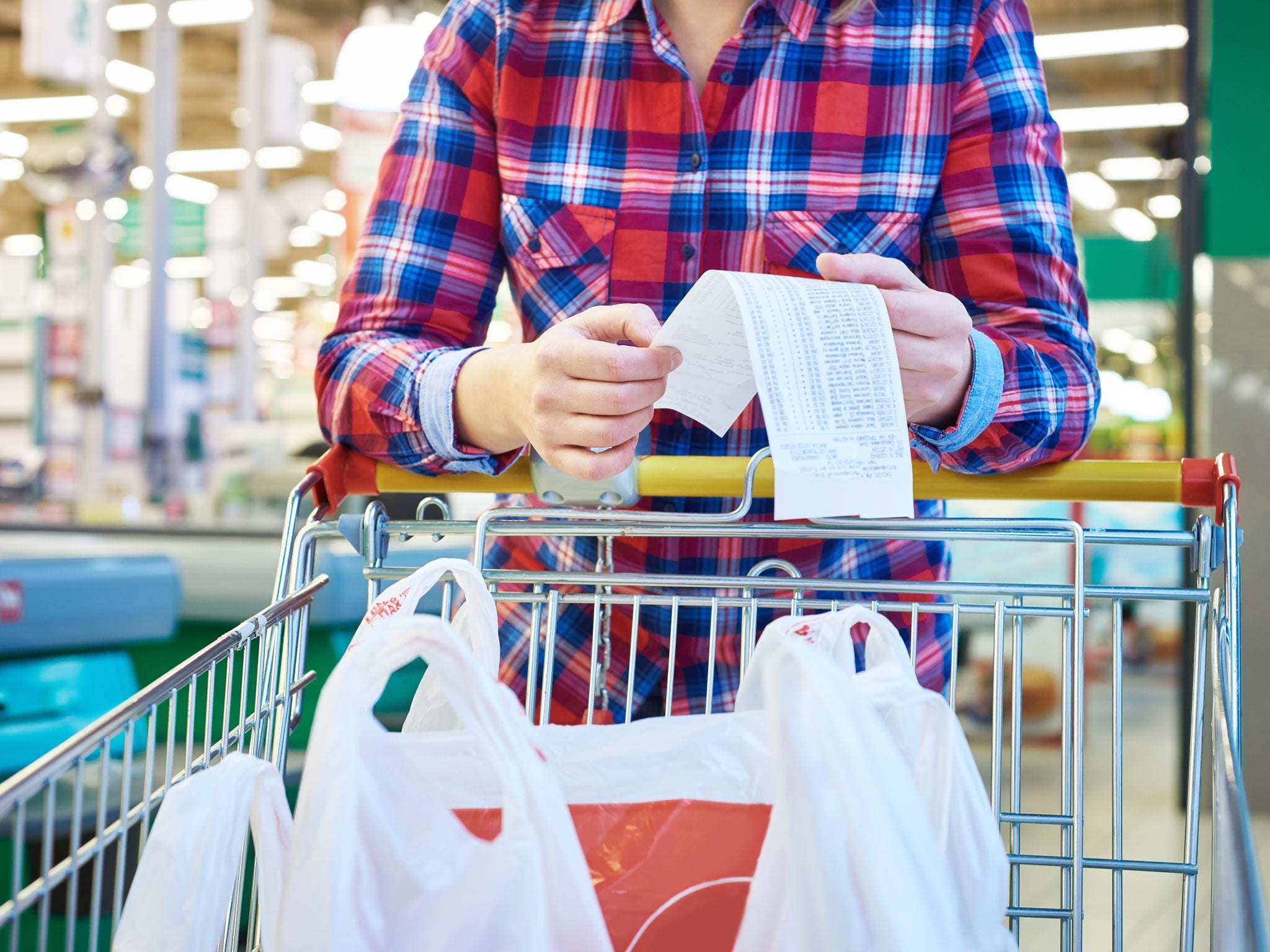Food prices rise at quickest rate in decade, data shows
Households will see an estimated £271 added to their food bills this year

Your support helps us to tell the story
From reproductive rights to climate change to Big Tech, The Independent is on the ground when the story is developing. Whether it's investigating the financials of Elon Musk's pro-Trump PAC or producing our latest documentary, 'The A Word', which shines a light on the American women fighting for reproductive rights, we know how important it is to parse out the facts from the messaging.
At such a critical moment in US history, we need reporters on the ground. Your donation allows us to keep sending journalists to speak to both sides of the story.
The Independent is trusted by Americans across the entire political spectrum. And unlike many other quality news outlets, we choose not to lock Americans out of our reporting and analysis with paywalls. We believe quality journalism should be available to everyone, paid for by those who can afford it.
Your support makes all the difference.Households can expect to spend an additional £271 on their groceries this year as the price of food increases at its fastest rate in 11 years.
New data from analytics group Kantar found that grocery price inflation hit 5 per cent in April, the fastest rise since December 2011.
Fraser McKevitt, head of retail and consumer insight at Kantar, said: “The average household will now be exposed to a potential price increase of £271 per year.”
He added that most of this spending is being allocated to non-discretionary, everyday essentials which will “prove difficult to cut back on as budgets are squeezed”.
McKevitt continued: “We’re seeing a clear flight to value as shoppers watch their pennies. The level of products bought on promotion, currently at 27.3 per cent, has decreased 2.7 percentage points as everyday low price strategies come to the fore.”
Poverty campaigner Jack Monroe recently criticised supermarkets for removing some of its cheaper collections of everyday items. McKevitt says chains like Asda, Morrisons and Tesco have taken steps to offer cheaper food to shoppers.
The data found that supermarket sales dropped by 5.9 per cent over the 12 weeks to 17 April, and that sales are currently 0.6 per cent below where they were two years ago.
It added that Aldi is the fastest-growing retailer, with sales increasing by 4.2 per cent, followed by fellow budget retailer Lidl which has seen a 4 per cent rise.
McKevitt added: “Over one million extra shoppers visited Aldi and Lidl respectively over the past 12 weeks compared with this time last year.
“Both retailers achieved record-breaking market shares, with Aldi now holding 8.8 per cent while Lidl stands at 6.6 per cent. Collectively, the two discounters account for 15.4 per cent of the market - up from just 5.5 per cent a decade ago.”
He added that customers are stocking up on items they fear might become scarce due to Russia’s invasion of Ukraine.
“Last weekend several supermarkets introduced restrictions on cooking oil purchases as concerned consumers filled up their cupboards,” McKevitt said.
“The combination of rising prices and increased demand saw the cooking oil market grow by 17 per cent over April. Sunflower oil, Britain’s most popular choice for frying, and vegetable oil grew even faster - up by 27 per cent and 40 per cent respectively.”
Additional reporting by PA


Join our commenting forum
Join thought-provoking conversations, follow other Independent readers and see their replies
Comments